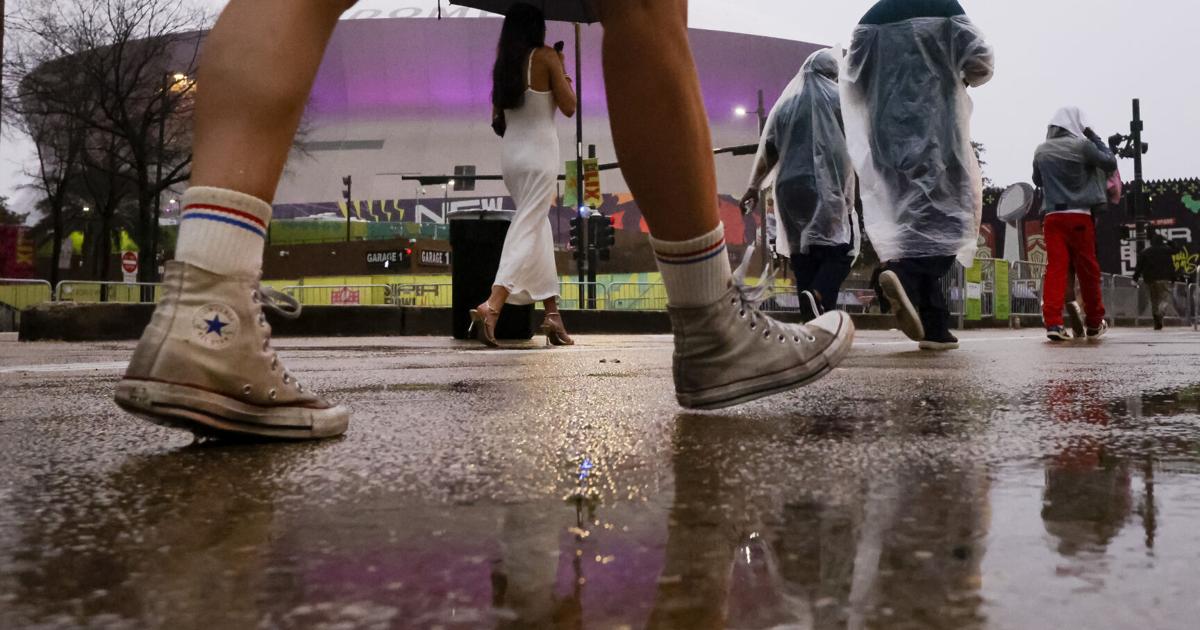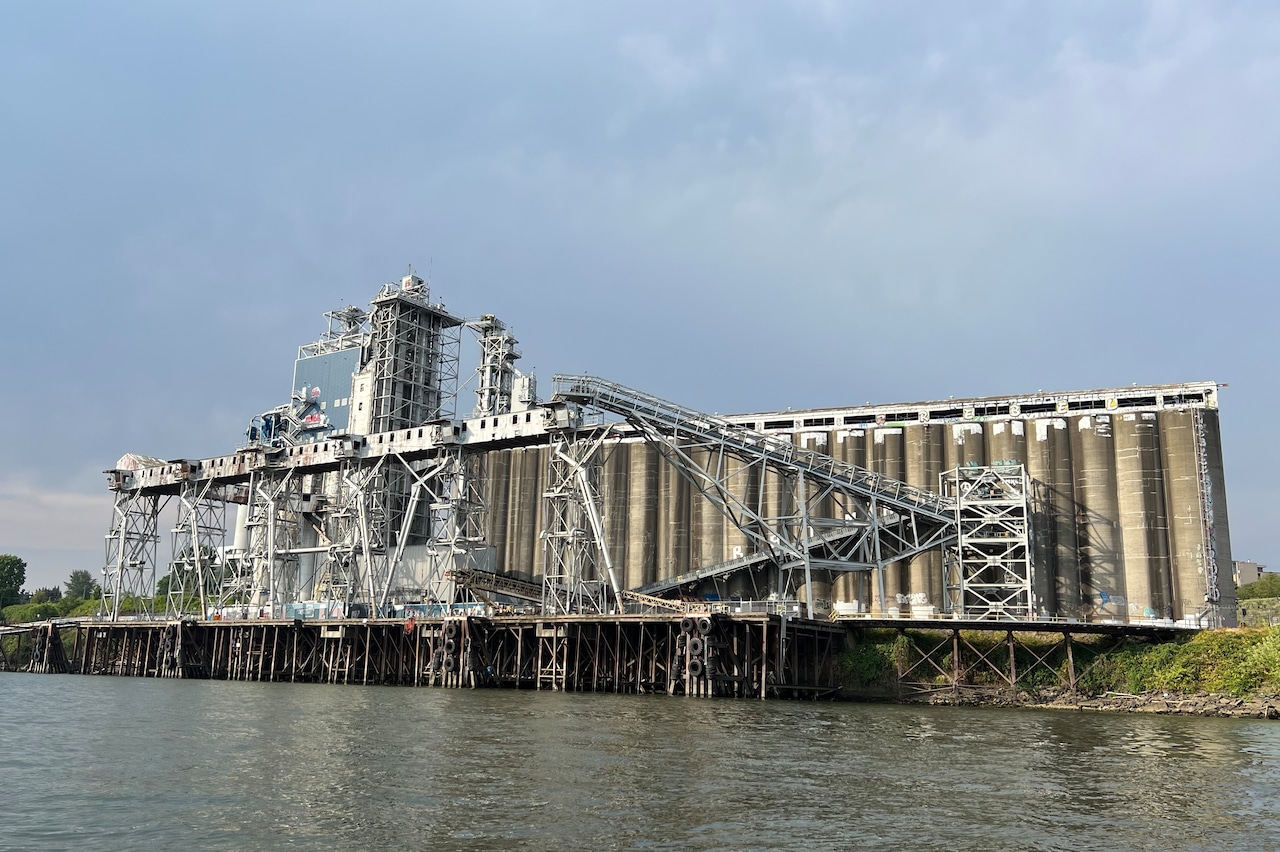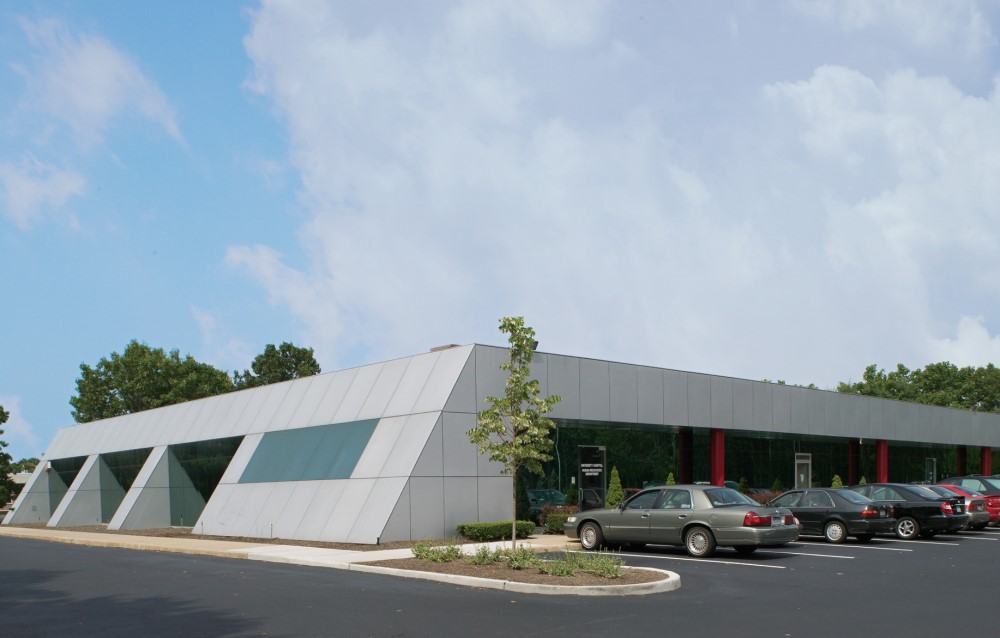A
light rain falls as fans head to the Caesars Superdome for Super Bowl LIX between the Philadelphia Eagles and the Kansas City Chiefs on Sunday, Feb. 9, 2025. (Photo by Scott Threlkeld, The Times‑Picayune)
The Saints and Louisiana have agreed on a 10‑year lease for the Superdome, with options to renew every five years through 2055, but the contract remains unsigned because the parties are still negotiating separate leases for Benson Tower, Champions Square and the team’s practice facility in Jefferson Parish. The state, represented by the Louisiana Stadium and Exposition District (the Superdome Commission), says the stadium deal is finalized, while the Saints insist the other agreements must be signed together to avoid financial and operational risks.
Superdome Commission chair Robert Vosbein and Saints spokesperson Greg Bensel confirmed on Monday that the Benson Tower lease is still under negotiation. Vosbein, a lawyer appointed by Gov. Jeff Landry, said the state wants to sign the Superdome lease first and then address the other properties. “We’re ready to sign the stadium deal now, but we won’t give in on the rest,” he said. “It’s a balance: you don’t want to lose the Saints, but you also want a fair deal for the public.”
Bensel added that the Saints are prepared to finalize an agreement that “keeps the New Orleans Saints in Louisiana for generations,” improves the Superdome, and delivers “meaningful economic benefit to the community.” He stressed that splitting the leases creates risks for both the team and the state.
The bottleneck traces back to a 2009 stadium deal negotiated by Saints owner Tom Benson when Bobby Jindal was governor and Ron Forman chaired the Superdome Commission. Forbes described that agreement as “the most complex—and lucrative—stadium lease agreements in the NFL.” It included a $5 million bonus if the Superdome hosted a Super Bowl, a 42% share of game‑day food and beverage revenue, shares of non‑football event revenue, naming‑rights revenue, parking revenue, and rents from Champions Square. The state also agreed to rent space in Benson Tower, a building near the Superdome owned by the Benson organization and largely occupied by state agencies.
In 2014, Louisiana Legislative Auditor Daryl Purpera noted that state rents at Benson Tower began above market and continued to rise with automatic CPI‑based increases. By 2010, lease costs—including vacant space—had nearly doubled and were more than 30% above market. As of March this year, the state’s rent was $32.50 per square foot, covering almost all available space, according to auditor Mike Waguespack. This rate exceeds the average downtown office rent of $20.67 per square foot reported by Goodwin Advisors last month.
Bensel disputes that the Benson Tower rents are above market. He argues that when parking, operating expenses, and other concessions are included, the effective rate aligns with other downtown office leases. “This is not the opinion of the team or Forbes, but of local real‑estate experts who deal in this market daily,” he said. The Saints have provided the state with comparable lease agreements in New Orleans. Bensel emphasized that tying Benson Tower and Champions Square to the stadium package is the financial backbone that makes the overall deal viable in a small NFL market.
According to Waguespack, the state spends $10.3 million on Benson Tower office space this year. Business owner and Gov. Landry confidante Shane Guidry has expressed frustration at the Saints’ stance. “We’re ready to sign the Saints extension, but they won’t sign the lease unless they know they have a locked‑in lease for Benson Tower and Champions Square,” Guidry said.
The 2009 deal also included a clause that automatically renews the Benson Tower lease under the same terms and length as any new stadium deal. If the state defaults on certain provisions, the stadium lease defaults. The state has tried to decouple these side agreements, which run through 2029, from the stadium lease, but the Saints have remained firm. “It’s two separate pieces of real estate for different purposes,” Waguespack said. “From an auditor’s standpoint, it should be two separate deals unless the package is a better deal for taxpayers, and I don’t think it is.”
The standoff has delayed finalizing the agreements for weeks, jeopardizing New Orleans’ chance to host the 2031 Super Bowl because of an NFL deadline. If the city cannot bid for 2031, scheduling issues could push its next opportunity to 2038. The Saints have said that if a deal is reached soon, Gayle Benson could seek NFL Commissioner Roger Goodell’s approval for a 2031 bid.













